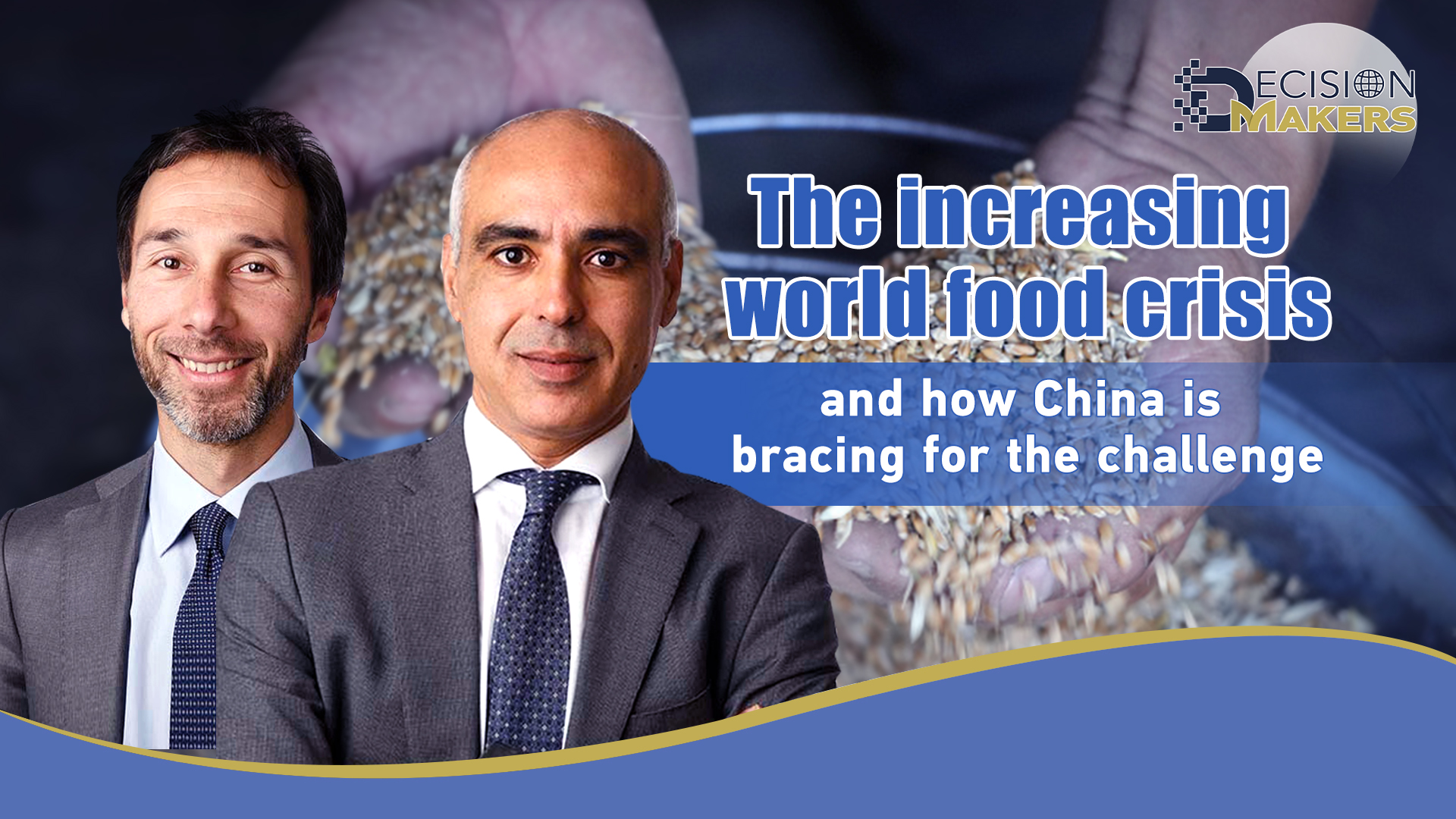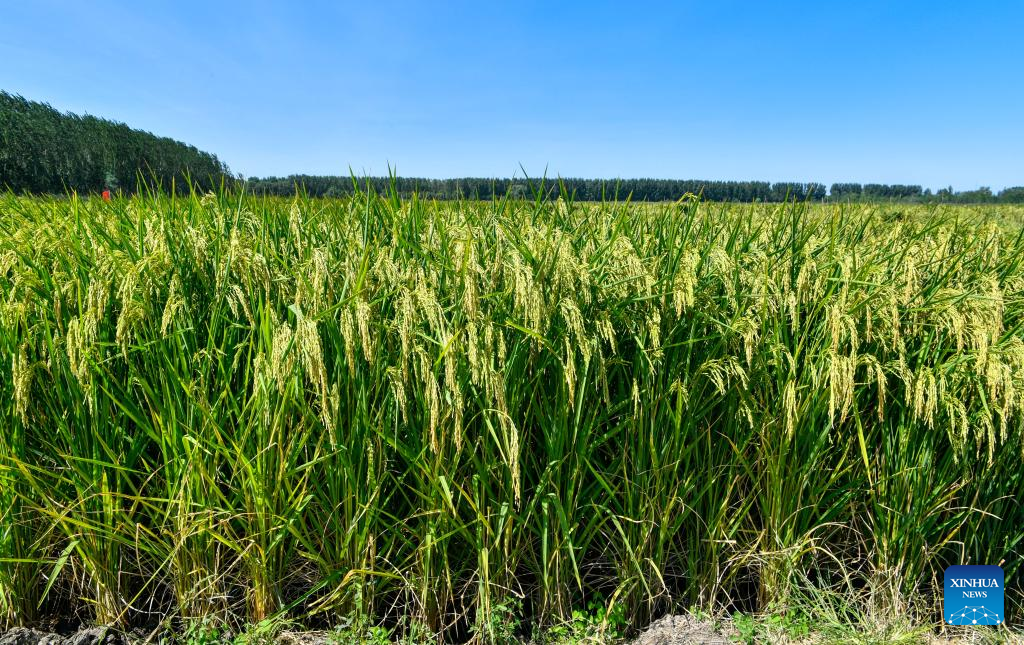
Editor's note: Decision Makers is a global platform for decision makers to share their insights on events shaping today's world.
By Abdelkarim Sma and Matteo Marchisio
Increasing world food crisis
The ongoing raging war in Ukraine has set in motion a three-dimensional crisis on food, energy and fertilizers. Many nations are navigating unchartered waters since this crisis is producing alarming cascading effects on food security at a moment when the global economy is still trying to recover from the pandemic, another major global shock. The conflict is sending shockwaves into global commodity markets far beyond Ukraine's borders owing to the weight of the Russia and Ukraine conflict impacting those markets. Russia, in particular, is the world's top natural gas exporter and a major producer of grains and fertilizers. The upward trend in conflicts- and climate-induced humanitarian crises, such as the one caused by the recent massive flooding in Pakistan are adding on to the severity and urgency of the present-day situation.
There is an overall sense that the livelihoods of many people worldwide, including smallholder farmers, one of the most vulnerable groups in societies, are increasingly becoming a collateral damage in yet another major crisis for which they bear no responsibility. This dire situation is translating into noticeable setbacks facing the sustainable development goals (SDGs). The International Monetary Fund reckons that the pandemic alone is expected to erase up to five years of per capita income growth in Asia and the Pacific region with rural poverty head-counts and unemployment levels expected to edge up in nearly all countries.
Governments have enacted relief packages worth billions of U.S. dollars. Nonetheless, poor countries cannot afford this and remain highly dependent on external financial flows from both bilateral and multilateral channels.
Unfortunately, the flows of development finance and official development assistance (ODA) in particular are facing serious headwinds. Those badly needed financial resources are getting increasingly diverted to short-term emergency responses at the expense of more long-term development investments. This, coupled with shrinking fiscal spaces and growing sovereign and private indebtedness, are but a few examples of the multiple megatrends shaping the rural development arena nowadays.
Attaining food security is inherently complex given the ever-changing biophysical, trade policy, technological and geopolitical factors at play. Attaining food security in such a turbulent context is even more complex.

A rice field in Dongbai Village of Dongjituo Town, Ninghe District, north China's Tianjin, September 6, 2022. [Photo/Xinhua]
China copes with global challenges
China's food production has been extraordinarily high for the past several consecutive years and that China maintains a high level of food self-sufficiency. Nevertheless, China's food imports have been rising over the past years.
As part of its food security strategy, Beijing has boosted efforts on the one hand by increasing domestic agricultural production to meet growing domestic demand, and on the other hand by diversifying imports – particularly to reduce its reliance on the U.S. Accordingly, China has increased imports from Russia, Central Asia and Eastern European countries. The Russia-Ukraine conflict will affect China's import diversification efforts.
In the short term, the government may want to dip into its grain strategic reserves in order to guarantee food security and minimize inflation. A sudden and drastic rise in food prices could generate panic. In the medium to long term, the government could boost domestic production and achieve food self-sufficiency to reduce the risks from external shocks. China's investments in digital- and bio-technologies applied to agriculture may represent the way forward.
In this context, special attention should be placed to the poorest and most vulnerable. It is in fact them who will be the most affected by food shortages or rising food prices. It is thus important that the country specifically supports the vulnerable groups by expanding social safety nets to protect them. In the long run, focus should be placed on strengthening the capacity of these groups to cope and recover from shocks.
IFAD's solid partnership with China
As a significant investor into global food systems in order to shore up agriculture-based rural livelihoods, the International Fund for Agricultural Development (IFAD) stands keen to partner with like-minded global players to ensure collective and timely crisis responses. Its longstanding and solid partnership with China and other member states has consistently prioritized tangible and innovative solutions to make inroads into persistent rural poverty, inequality and natural resource degradation.
Over the past 40 years, IFAD and China have shared the same goals of eliminating rural poverty and promoting rural developments and have worked together to innovate and implement best practices.
We are striving to foster pro-poor agriculture and food policies while coupling them with a consistent delivery at scale of rural investments. The latter investments are bolstering the competitiveness, inclusion and resilience of agri-food value chains. We believe that this two-pronged approach is the best remedy against soaring food inflation in the medium to long run.
Scaling up existing social safety nets and properly linking them to producer support mechanisms is also warranted as an effective short-term measure to cushion the impact of recent food commodity price increases and sustain the fledgling recovery. That said, the current episode of combined food, fuel and fertilizer shocks should not distract us from the looming climate change threats and the necessity to place agri-foods systems of developing countries onto a more sustainable pathway to contribute their fair share to achieve carbon neutrality by 2030.
Abdelkarim Sma is the lead regional economist for the Near East, North Africa and Europe division at the International Fund for Agricultural Development. Matteo Marchisio is the country representative of the International Fund for Agricultural Development in China.

 中文
中文



